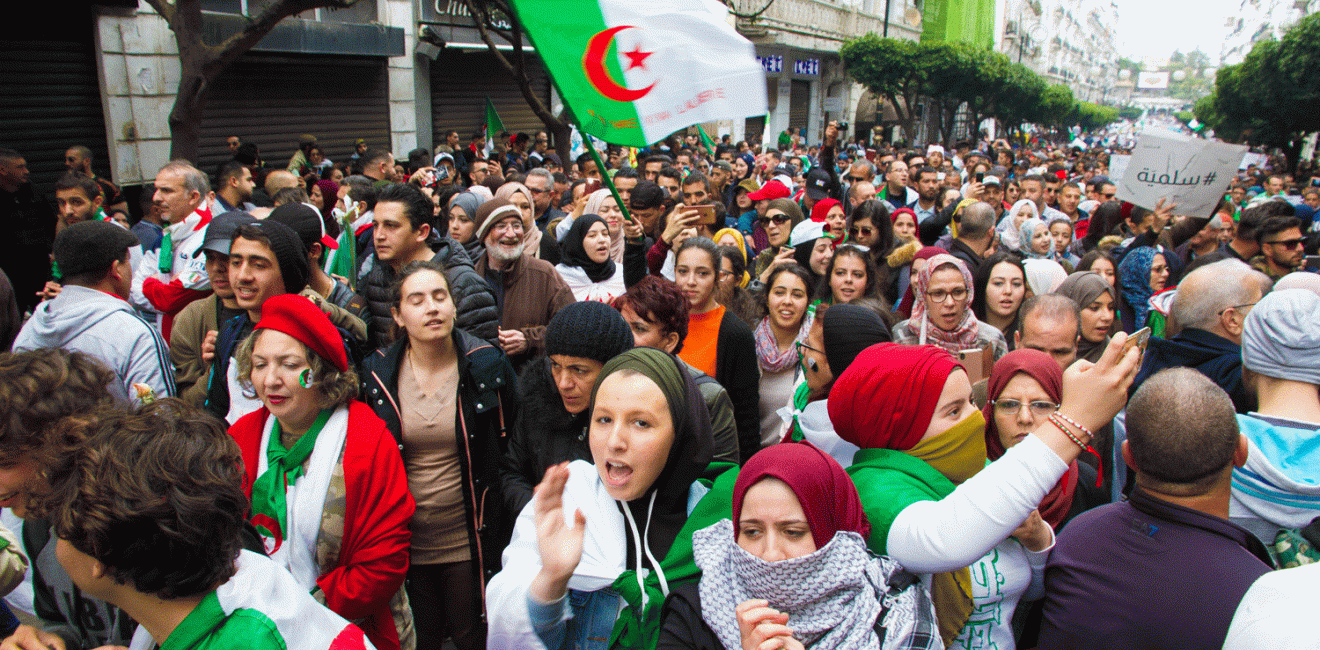
A blog of the Middle East Women's Initiative
These persistent injustices are fueled by traditional and cultural beliefs that men have a right to control women and girls, making them vulnerable to physical, emotional and sexual abuse.
The year 2020 marked the 20th anniversary of the United Nations Resolution on Women, Peace & Security, also known as UN Resolution 1325 WPS (UNSCR 1325). 2020 also marked 72 years since the adoption of the Universal Declaration of Human Rights (UDHR).
Unfortunately today, women are still struggling to ensure their fundamental right to life. In fact, emerging data shows an increase in calls to domestic violence helplines since the outbreak of the COVID-19 pandemic. Since the beginning of 2020, over 50 women in Algeria have been victims of femicide, and the death toll is expected to rise due to the silence of the authorities and a society that regards domestic violence as a private, household matter. Considered men’s ‘property’, women are expected not to complain about their situation.
On paper, Algeria’s laws appear ideal. The constitution clearly states: “All citizens are equal before the law. No discrimination shall prevail because of birth, race, sex,” etc. In 2014, the Algerian authorities addressed sexual and gender-based violence by offering financial compensation to women victims of sexual crimes committed by armed groups during the civil war in the 1990s. In 2015, a law was adopted making violence by a spouse, and sexual harassment in public spaces, criminal offences.
However, despite advancement in the letter of the law, women’s footholds have been shirking for over two decades – becoming nearly non-existent – fed by poverty, feminicide, domestic and sexual violence, social inequalities, and more. These persistent injustices are fueled by traditional and cultural beliefs that men have a right to control women and girls, making them vulnerable to physical, emotional and sexual abuse. Women who manage to stand for up their rights very often find themselves disfranchised economically and ostracized socially.
The evidence suggests that gender inequalities increase the risk of violence by men against women and inhibit the ability of those affected to seek protection. Today it’s clear that promoting gender equality to prevent violence against women must not only be mandatory but also implemented effectively. Responses to violence must address the particular needs of women and girls; they must be treated as equal partners in all efforts to build peace, actors in the economy, and support the nation all together.
Governments must engage with women’s human rights defenders and women’s civil society organizations and activists. It must use that cooperation to strengthen gender balance at different institutional levels, starting with modernization of educational curriculums. It must promote women’s economic security and access to resources and decision-making related to peacebuilding, post conflict planning, and economic recovery.
Algeria, along with all MENA countries, must finally understand that women’s development is THE key – not merely an element– to advanced society. This is advice the United States government should heed, too.
Author


Middle East Program
The Wilson Center’s Middle East Program serves as a crucial resource for the policymaking community and beyond, providing analyses and research that helps inform US foreign policymaking, stimulates public debate, and expands knowledge about issues in the wider Middle East and North Africa (MENA) region. Read more


Middle East Women's Initiative
The Middle East Women's Initiative (MEWI) promotes the empowerment of women in the region through an open and inclusive dialogue with women leaders from the Middle East and continuous research. Read more

Explore More in Enheduanna
Browse Enheduanna
Women are the Catalysts for Change in Lebanon

How Education Can Empower Young Women in MENA


